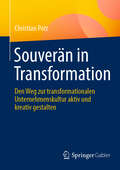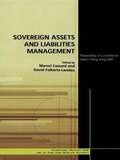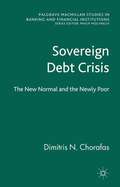- Table View
- List View
Southfield Packaging
by Michael Beer Alisa ZaloshSouthfield Packaging provides packaging materials and services to medical device manufacturers. The case examines the relationship between a corporate vice president, Mark Sanders, and one of his direct reports, Regional Manager Frank Belby. Sanders' preparation for Belby's annual performance review provides a foundation for discussing the common challenges and difficulties associated with performance reviews. Specific issues include the need to clearly define criteria for evaluation and the question of whether Belby's physical health should play a role in his performance review. Overall, is Southfield's appraisal process a fair and effective way of evaluating employee potential?
Southland Corp. (A)
by Richard S. Ruback Elizabeth H. McnairExamines the Thompson's $4.9 billion leveraged buyout of the Southland Corp. in 1987. As the original founders of Southland, the Thompsons were concerned about losing control over the company upon learning of the Belzberg family's acquiring interest. The teaching objectives are: to explore the characteristics of an LBO candidate, to examine the dynamics of the corporate control process when insiders are substantial stockholders, and therefore serve as both buyer and seller, and to evaluate the cash flow forecasts in an LBO and use them to analyze bidding behavior.
Southport Minerals, Inc.
by William E. FruhanExamines how the attractiveness of an investment project can be enhanced by making financing and operating decisions which either manage investment returns or reduce project risks.
Southwest Airlines (A)
by Christopher H. LovelockSouthwest Airlines, a small intrastate carrier serving Dallas, Houston and San Antonio, begins service in 1971 in the face of competition by two larger, entrenched airlines. Improved quality service, lower prices, and innovative advertising and promotional strategy bring Southwest to the brink of profitability in early 1973, when its major competitor halves fares on Southwest's major route. Management wonders what response to make. Exhibits include cost and revenue data. Southwest Airlines (C), which may be used as an alternative to the (A) case, focuses on advertising and promotional strategy through June 1971.
Southwest Airlines (B)
by Christopher H. LovelockDescribes Southwest's response to a competitive fare cut and the results, bringing the action up to late March 1973, when management must make additional decisions on marketing strategy with both short- and long-range implications. Southwest Airlines (C) should not be used with this case.
Southwest Airlines (D)
by Christopher H. LovelockAfter 18 months of deficit operations, Southwest Airlines stands on the brink of profitability. Selective application of discount fares has contributed to a rapid growth in market share. Then, in February 1973, its major competitor halves all fares on Southwest's principal route. Management must decide how to respond. Exhibits detail Southwest's cost structure plus passenger and flight statistics for Southwest and competitors.
Southwest Airlines 2002: An Industry Under Siege
by James L. HeskettThe company's management is faced with long-term questions regarding the rate and manner of growth in the wake of the 9/11 attacks and general industry malaise.
Southwest Airlines in Baltimore
by David Lane Rogelio Oliva Jody Hoffer GittellThe number of connecting passengers through Southwest Airlines' Baltimore station has grown 100% CAGR since 1997. Originally designed as a point-to-point network, this load of connecting passengers has been stressing Baltimore ground operations, resulting in an erosion of service quality and difficulties in achieving fast plane turnarounds--one of the key elements of Southwest's low-cost strategy. This case presents comparative data to illuminate the key elements of Southwest's operating strategy and provides detailed information about the activities and information flows required to turn around a plane, allowing for a meaningful analysis of the process--e.g., resource utilization, capacity, bottlenecks, and coordination mechanisms. A rewritten version of an earlier case.
Southwest Airlines in Baltimore, Supplement
by David Lane Rogelio Oliva Jody Hoffer GittellSupplements the case.
Southwest Airlines--1993 (A)
by James L. Heskett Roger HallowellSouthwest Airlines, the only major U.S. airline to be profitable in 1992, makes a decision as to which of two new cities to open, or to add a new long-haul route. Provides windows into Southwest's strategy, operations, marketing, and culture.
Southwest Airlines: In a Different World
by James L. Heskett W. Earl Sasser Jr.This is the fourth in a 35-year series of HBS cases on an organization that has changed the rules of the game globally for an entire industry by offering both differentiated and low-price service. The focus of the case is on whether Southwest Airlines should buy gates and slots to initiate service to New York's LaGuardia airport, which does not fit the airline's profile for cost, ease of service, and other factors. The bigger issue is how the organization should deal with competition that has successfully emulated more and more of what it does in an operating environment that has changed significantly. Hence the subtitle, which was suggested by Herb Kelleher, Southwest's Chairman and CEO, Emeritus.
Southwick Social Ventures
by Henry W. McGee Mel Martin Amy KlopfensteinIn 2021, the HBS Impact Investment Fund student team had found a promising impact investment in the co-operative trouser manufacturer, Southwick Social Ventures. Their 100% immigrant workforce sought to pave the road to transforming Lawrence, Massachusetts, a city that was once a manufacturing hub that had recently seen less economic investment than other U.S. cities. The student team was then charged with recommending a set of terms to their investment committee. They needed to determine how exactly to strike the right balance between providing an acceptable return to the fund while providing founder-friendly terms to Southwick Social Ventures.
South—South Regional Financial Arrangements: Collaboration Towards Resilience (International Political Economy Series)
by Kevin P. Gallagher Diana Barrowclough Richard Kozul-Wright William N. KringThis book shows how regional cooperation and integration have increased massively in scale and scope in recent years, as developing countries seek new ways to shield themselves from economic turbulence and to kick-start their economies in the face of stagnant global demand. The trend is partly a defense mechanism against the limitations of the international financial system, but also reflects a wider search for new and different growth paths more appropriate with developing countries’ increasing economic and political voice. As a consequence, the landscape of financial and monetary mechanisms has changed dramatically, especially in the ten years since the economic crisis of 2007–2008.
Souverän in Führung: Strategien und Mindset für erfolgreiches Leadership in Zeiten von New Work
by Christian PolzNichts ist, wie es mal war. Die Herausforderungen der modernen Arbeitswelt erfordern es, Führung neu zu denken, neu zu justieren und neu auszurichten. Der Autor beschreibt in seinem praxisorientierten Ratgeber, wie Führung heute und zukünftig gelingt. Im Fokus steht das Collective Leadership: Jeder im Unternehmen, jeder in der Abteilung und jeder im Team übernimmt Verantwortung. Will, darf und soll Verantwortung übernehmen. "Wir sind alle Leader!", so das Leitmotiv. Wer Collective Leadership etablieren will, durchläuft einen Entwicklungsprozess. Collective Leadership bedeutet Mitarbeiter, die sich selbst führen können und wollen, aber es gibt auch Mitarbeiter und Situationen, in denen die Führungskraft zum Beispiel direktiv oder transaktional agieren muss. Sie muss beides können und darum Führungssouveränität und Führungsstilsouveränität aufbauen. Dazu gehört auch das entsprechende Mindset. Zu diesem Mindset gehört, die Auseinandersetzung mit dem eigenen Menschenbild, den Kompetenzen und Fähigkeiten (Stichwort Selbstreflexion). Christian Polz stellt die Entwicklung zur souveränen Führungspersönlichkeit und zu Collective Leadership in drei Teilen dar: Der Beschreibung des Konzepts des souveränen Führens folgt die Erläuterung des dazu notwendigen Mindsets. Im dritten Teil steht die Umsetzung im Vordergrund. Neben der Darstellung des Konzeptes des souveränen Führens und des Mindsets der souveränen Führungspersönlichkeit bietet dieser Umsetzungsteil ein Highlight. Dort veranschaulicht Christian Polz die wichtigsten Führungsansätze und Führungsstile in einem fiktiven Dialog zwischen einem Coach und einer "lernenden" Führungskraft. Der Autor nutzt seine Erfahrungen und zahlreichen Gespräche mit Unternehmern, Inhabern, Selbstständigen, Vorständen, Geschäftsführern, Managern und Führungskräften, um ein authentisches und realistisches Bild einer neuen Führung zu kreieren. Dazu arbeitet er mit vielen Beispielen aus seinem Erfahrungsschatz, den er als Berater, Coach, Trainer und Supervisor aufgebaut hat.
Souverän in Transformation: Den Weg zur transformationalen Unternehmenskultur aktiv und kreativ gestalten
by Christian PolzDas Buch beschreibt anhand eines praxisbewährten, umsetzungsorientierten Fünf-Schritte-Plans, wie die kulturelle Transformation in Unternehmen souverän gelingt. Der Autor erklärt zunächst die Analyse der Ist-Situation, der Unternehmenskultur und der Ausprägung der Kompetenzen der Führungskräfte und Mitarbeitenden mithilfe bewährter Erklärungsmodelle. Danach fokussiert er sich auf die kulturelle Transformation mit der Umsetzungsformel Kultur = Haltung x Verhalten. Das Kernstück der Transformation besteht aus drei Journeys: kulturelle Transformation auf der Individualebene, auf der Team- und Unternehmensebene sowie auf der organisatorischen Ebene. Christian Polz wählt mit der Dialogform eine innovative Darstellungsform und nimmt Sie mit auf eine Entdeckungsreise hin zu einer gelingenden transformationalen Unternehmenskultur. Profitieren Sie von den Erfahrungen des Autors und denen der zahlreichen Unternehmen, die er bereits auf dem transformationalen Weg begleiten durfte. So gelingt es Ihnen, von Anfang an souverän mit motivierten und eigenverantwortlichen Mitarbeitenden zu interagieren, die die Transformation aktiv mittragen, unterstützen und mit Begeisterung verwirklichen.
Souverän präsentieren - Die erste Botschaft bist Du: Wie Sie Körpersprache authentisch und wirkungsvoll einsetzen
by Dominik Umberto SchottDieses Buch liefert Ihnen hilfreiche Tipps, mit denen Sie Ihre Wirkung beim Präsentieren verbessern.Wenn Präsentationen gelingen, liegt es meist nicht nur am Inhalt, sondern auch am authentischen Vortragsstil und einer natürlichen Körpersprache des Redners. Viele haben jedoch Schwierigkeiten, ihr Lampenfieber bei Präsentationen am Rednerpult zu überwinden und Kontakt mit dem Publikum aufzunehmen. Dabei ist gerade in der mündlichen Kommunikation die Person entscheidend. Wie souveränes Präsentieren gelingt, vermittelt Ihnen Dominik Umberto Schott Schritt für Schritt in diesem Buch. Er stellt Ihnen die wichtigsten Stellschrauben vor, die Ihren Worten mehr Wirkung verleihen, und zeigt an konkreten Beispielen, wie Sie die Dramaturgie eines Redeaufbaus nutzen. Zudem lernen Sie, wie Sie Ihre Körpersprache und Storytelling natürlich einsetzen, um einen glaubhaften Auftritt hinzulegen. Die 2. Auflage wurde um zahlreiche Tipps für noch mehr Wirkung bei virtuellen Meetings sowie Videos mit zahlreichen Präsentationsbeispielen ergänzt. Schott vermittelt Ihnen umfangreiche Kompetenzen.Der Autor klärt in seinem Buch „Souverän präsentieren“ zunächst grundlegende Fragen wie:Was ist eine Präsentation?Woraus besteht sie?Wie wirken Inhalt, Struktur und Vortragsweise zusammen?Anschließend widmet er sich dem großen Themenkomplex der Authentizität. Erfahren Sie, wie Sie Ihre Außenwirkung verbessern und erarbeiten Sie sich mit diesem Buch die folgenden Kernkompetenzen des Präsentierens:Die Formel für WirkungDie vier Erfolgsfaktoren einer guten PräsentationKörpersprache für FortgeschritteneVorbereitung: StoryboardingDramaturgie: Von den Griechen lernenInspirieren: KognitionspsychologieShowtime: Umgang mit Folien & CoNervosität: Das alte Alarmsystem und Strategien gegen den BlackoutVerbindung: Zuhören und InklusivspracheEine mitreißende Mischung aus Humor und jahrelanger Erfahrung.Abschließend erläutert Schott die Vorteile und Risiken von Fragerunden und gibt Ihnen praktische Tipps zur Erweiterung Ihrer Komfortzone. Dieses Buch ist eine Art Rhetorik-Training to go, das alle Phasen des souveränen Präsentierens genauestens beleuchtet – von der Vorbereitung bis hin zur Umsetzung. Ein unverzichtbarer Ratgeber voller Witz und Expertenwissen aus drei Jahrzehnten Praxis für:a) Einsteiger, die an Ihrem Auftreten feilen möchtenb) Erfahrene Redner, die sich noch weiterbildenc) All diejenigen, die überzeugen sowie inspirieren wollen
Souverän präsentieren – Die erste Botschaft bist Du
by Dominik Umberto SchottWenn Präsentationen gelingen, liegt es meist nicht nur am Inhalt, sondern auch am authentischen Vortragsstil und einer natürlichen Körpersprache des Redners. Viele haben jedoch Schwierigkeiten, ihr Lampenfieber bei Präsentationen am Rednerpult zu überwinden und Kontakt mit dem Publikum aufzunehmen. Dabei ist gerade in der mündlichen Kommunikation die Person entscheidend. Wie souveränes Präsentieren gelingt, vermittelt Ihnen Dominik Umberto Schott Schritt für Schritt in diesem Buch. Er stellt Ihnen die wichtigsten Stellschrauben vor, die Ihren Worten mehr Wirkung verleihen, und zeigt an konkreten Beispielen, wie Sie die Dramaturgie eines Redeaufbaus nutzen. Zudem lernen Sie, wie Sie Ihre Körpersprache und Storytelling natürlich einsetzen, um einen glaubhaften Auftritt hinzulegen.
Sovereign Assets And Liabilities Management
by Marcel CassardThe papers contained in this publication were presented at an International Monetary Fund organised conference held in Hong Kong in 1996. The conference focused on a wide range of issues confronting policy makers in managing their sovereign assets and liabilities in a world of mobile capital and integrated capital markets. These issues included: the strategy of public debt management; the management of central bank reserves; the technical and quantitative aspects of risk management; and credit costs and borrowing capacity in debt organisation. The papers also describe the experience of various countries in managing their own sovereign assets and liabilities. These experiences are drawn from policy makers and private sector participants who have been actively involved in formulating and implementing national debt and reserves policies.
Sovereign Credit Rating: Questionable Methodologies (Routledge Studies in Corporate Governance)
by Ahmed NaciriThe current degradation of sovereign balance sheets raises very real concerns about how sovereign creditworthiness is measured by credit rating agencies. Given the disastrous economic and social effects of any downgrade, the book offers an alternative and calls for more transparency about the quantitative measures used in calibrating the rating process and how sovereign ratings are validated. It argues that oversight is required and procedures improved, including subjecting methodologies of assessing default to more standardization and monitoring. Sovereign Credit Rating explains the process of sovereign creditworthiness assessment and explores the consequences of possible inaccuracies in the process. Developing an innovative new methodology to assess ratings accuracy, it shows that the announcement of each rating action by the major credit rating agencies show alarming inconsistencies. Written by an internationally recognized author and professor, this unique book will be of interest to researchers and advanced students in corporate governance, accounting, public finance and regulation.
Sovereign Debt
by Mauro MeglianiThis book provides a thorough legal analysis of sovereign indebtedness, examining four typologies of sovereign debt - bilateral debt, multilateral debt, syndicated debt and bonded debt - in relation to three crucial contexts: genesis, restructuring and litigation. Its treatise-style approach makes it possible to capture in a systematic manner a phenomenon characterized by high complexity and unclear boundaries. Though the analysis is mainly conducted on the basis of international law, the breadth of this topical subject has made it necessary to include other sources, such as private international law, domestic law and financial practice; moreover, references are made to international financial relations and international financial history so as to provide a more complete understanding. Although it follows the structure of a continental tractatus, the work strikes a balance between consideration of doctrinal and jurisprudential sources, making it a valuable reference work for scholars and practitioners alike.
Sovereign Debt Crises and Negotiations in Brazil and Mexico, 1888-1914: Governments Versus Bankers
by Leonardo WellerThis book analyzes the relative balance of bargaining power between governments and the banks in charge of underwriting their debt during the first financial globalization. Brazil and Mexico, both indebted countries that underwent major changes in reputation and negotiating power as they faced financial crises, provide valuable case studies of government strategies for obtaining the best possible outcomes. Previous literature has focused on bankers’ perspectives and emphasized that debtors were submissive during negotiations, but Weller finds that governments’ negotiating power varied over time. He presents a new analytical framework that interprets when and why officials were likely to negotiate loans more or less effectively, with newly uncovered primary sources from debtors’ and creditors’ archives suggesting key causes of variation: fiscal accounts, political stability, and creditors’ exposure and reputation.
Sovereign Debt Crises: What Have We Learned?
by Juan Pablo Bohoslavsky Kunibert RafferThere is an obvious need to learn more about why some countries succeed and others fail when dealing with debt crises. Why do some sovereign debtors overcome economic problems very quickly and at minor human rights costs for their people, while others remain trapped by debts for years struggling with overwhelming debt burdens and exacerbating economic problems and human suffering? This book analyzes fourteen unique or singular country cases of sovereign debt problems that differ characteristically from the 'ordinary' debtor countries, and have not yet received enough or proper attention - some regarded as successful, some as unsuccessful in dealing with debt crises. The aim is to contribute to a better understanding of the policy options available to countries struggling with debt problems, or how to resolve a debt overhang while protecting human rights, the Rule of Law and the debtor's economic recovery.
Sovereign Debt Crisis
by Dimitris N. ChorafasRestructuring the balance sheets of Western governments, banks and households is an important issue in the recovery after the recent crisis. Chorafas' latest book focuses on sovereign debt, sovereign risk and the developing economic and financial business climate and explains why the year of the big crisis may fall in the middle of this decade.











